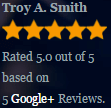In the US, law enforcement has a great deal of power. With that power comes responsibility. However, law enforcement doesn’t always act responsibly. At times, they can abuse their power. Confession coercion is one of the ways that they can abuse it. Learn why law enforcement might try to coerce a confession out of you and what is the impact of their actions.
Understanding Confession Coercion
Although it might sound like a complicated term, confession coercion is quite easy to understand. It occurs when a police officer forces you to make an involuntary confession. There are a few ways that this can occur:
1. Through physical force
A police officer cannot use force to make you confess to a crime. For example, he cannot put a gun to your head and tell you to confess. Likewise, he cannot physically harm you in an attempt to get you to confess. Under such situations, an individual could confess to a crime that he did not commit.
2. By threatening you
Under no circumstances can a police officer threaten to act against you if you fail to make a confession. For example, an officer cannot threaten to charge your family member with a crime if you don’t confess. He also cannot threaten to leak information about you to the press if you don’t confess.
A police officer also cannot threaten you with false charges. Although he can threaten charges that would apply in court, he can’t threaten to charge you with a crime of which there is no evidence.
3. Denying you basic rights
When a police officer interrogates you, there are certain rights that must stay intact. You have the right to water and bathroom privileges. However, an officer could try to coerce a confession from you by withholding those rights until you confess. You might be tempted to confess just to meet your basic needs.
Confession coercion is never legal
It’s important to note that confession coercion is never legal. Although you might waive your Miranda rights, you still have no right to experience coercion. If you do experience coercion, then a judge could choose to dismiss your confession. Without your confession, a prosecutor might not have a case against you.
The Reasons Behind Coerced Confessions
There are a few reasons that a police officer might break the rules and coerce a confession. Here are a few of them:
1. Quicker results
Finding a suspect and getting evidence against them is time-consuming. Sometimes, the police feel pressure to get quick results. If this is the case, they may choose to attempt confession coercion. If the police can get you to confess to a crime, then they have less work to do. They have someone to blame for the crime and can eliminate any external pressure.
2. Justice
Sometimes, police officers claim to use coercion to attain justice. If an officer thinks that you committed a crime, he may try to force you to confess to it. When there is little evidence against you, this may be the only way that he feels justice can be achieved. He may do whatever it takes to get you in jail.
3. Few consequences
Confession coercion often occurs because it often goes unpunished. In most cases, coercion goes unnoticed. An individual confesses under force, and no one hears about it. Even when word gets out about the coercion, there may be no repercussions for the involved police officers.
Why is coercion a bad thing?
There are many negative consequences to confession coercion. First, it degrades the truth. As a police officer, an individual takes an oath to seek justice and truth. But coercion isn’t about getting the truth. Instead, it’s about getting a quick result. An officer forces a confession, and the truth remains a secret.
Another consequence is the public perspective. When a police officer is guilty of coercion, it paints law enforcement officials in a negative light. People already have complaints about the police; coercion only seems to add to those complaints. It makes individuals distrustful of the police. As a result, law enforcement suffers as a whole.
There’s also the issue of hurting their own cause. If a police officer forces a confession, then he gives a criminal lawyer a way to defend his client. Although someone might be guilty of the crime that they confess to, he might not face charges for it. When a judge learns about the confession, she could dismiss the charges and possibly dismiss the case. It prevents justice.
Standing Up to Coercion
A coerced confession is never permissible. If you believe that you are a victim of coercion, you should contact a lawyer. It might not be too late to take action and fight your charges. Instead of being a victim of the criminal justice system, you can get justice. Talk to a lawyer to find out about your options.












